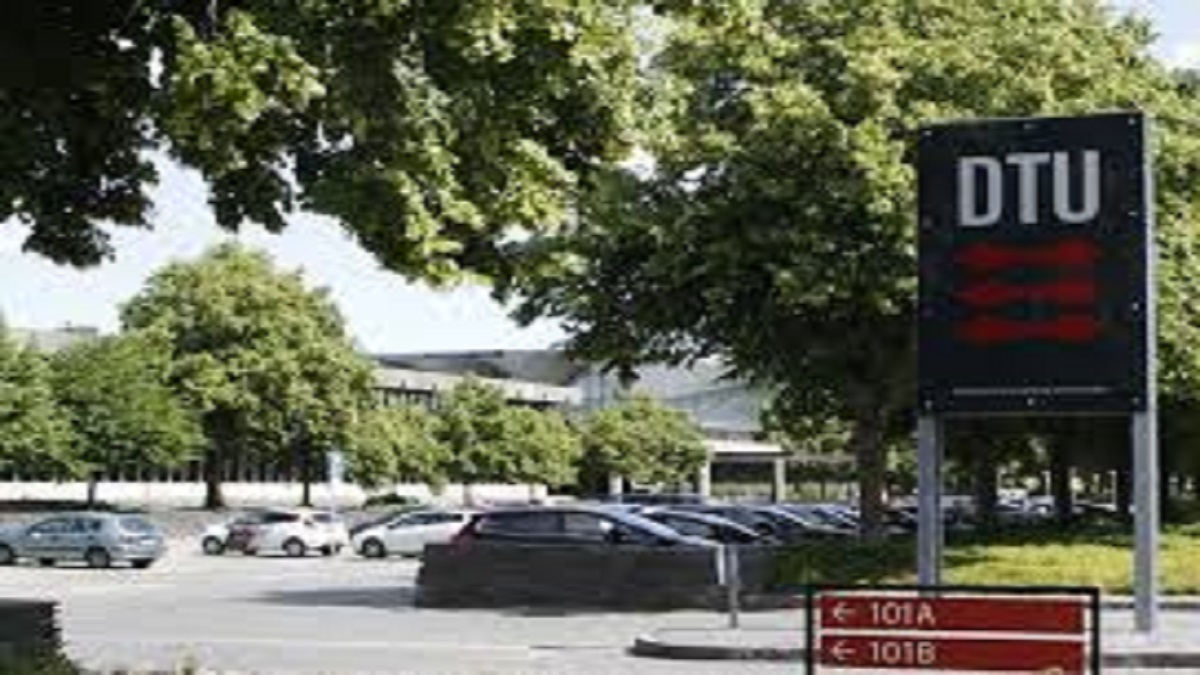
Researcher in Marine Automation and Data Engineering to develop automated methods for perception, mapping, and prediction tasks
DTU is looking for a researcher on automatic and autonomous data collection and perception technology, who can take on a multi-disciplinary role. You will be part of our Observation Technology group that performs research on remote, automated and autonomous data capture technologies for the global ocean with focus on Danish, Faroese and Greenlandic marine environments.
DTU Aqua invites applications for a tenure track position as researcher in the Section for Oceans and Arctic. In the position, you must both act as engineer providing support to marine scientists and oceanographers by maintaining our existing equipment and developing new observation technologies; as well as a data scientist, who is able to develop automated methods for perception, mapping, and prediction tasks on our data for specific research projects, and across a range of sensing technologies (e.g. acoustic, optical, chemical).
Responsibilities and qualifications
- You will develop and innovate new technologies, platforms, systems and software to enhance the ocean observation capabilities of DTU Aqua
- You will develop your research at the highest international standards and must be able to attract funding for research projects
- You will work in a multidisciplinary environment including technicians, engineers, and biologists.
- You will be responsible for managing the status and availability of existing systems and instruments as well as provide support for data collection and fieldwork campaigns
- You are curious and will investigate and publish new methods for the automation of difficult perception tasks, such as animal detection, counting and spatial mapping, in acoustic and optical datasets
- You are skilled in machine learning and computer vision approaches in the marine environment
- You will contribute to the education and engage in DTU’s teaching program UDTU as well as designing and supervising student projects
As formal qualification you must hold a PhD degree (or equivalent) in marine engineering and robotics.
- You must have documented research experience including published articles in relevant topics (autonomous systems, acoustic and optical data perception)
- You are highly skilled in Python, MATLAB and C++ programming languages (other languages also considered)
- You must be a social person working well in teams and projects
- You must have experience in mentoring Bachelor and Master students
- You must have good communication skills both in oral and written English and Danish
- You must have experience in planning and participating in national and international marine research cruises
You must contribute to the teaching of courses. You will be expected to learn Danish and be able to teach in Danish after 3 years. DTU can provide Danish language courses.
You will be assessed against the responsibilities and qualifications stated above and the following general criteria:
- Research experience
- Experience and quality of teaching
- Research vision and potential
- International impact and experience
- Societal impact
- Innovativeness, including commercialization and collaboration with industry
- Leadership, collaboration, and interdisciplinary skills
- Communication skills
We offer
DTU is a leading technical university globally recognized for the excellence of its research, education, innovation and scientific advice. We offer a rewarding and challenging job in an international environment. We strive for academic excellence in an environment characterized by collegial respect and academic freedom tempered by responsibility.
Salary and terms of employment
The appointment will be based on the collective agreement with the Danish Confederation of Professional Associations. The allowance will be agreed upon with the relevant union.
The position is part of DTU’s Tenure Track program. Read more about the program and the recruitment process here.
You can read more about career paths at DTU here.
Further information
Further information may be obtained from the head of section Karen Edelvang kaede@aqua.dtu.dk
You can read about DTU Aqua at www.dtu.aqua.dk.
If you are applying from abroad, you may find useful information on working in Denmark and at DTU at DTU – Moving to Denmark.
Application procedure
Your complete online application must be submitted no later than 1 July 2022 (Danish time).
Applications must be submitted as one PDF file containing all materials to be given consideration. To apply, please open the link “Apply online”, fill out the online application form, and attach all your materials in English in one PDF file. The file must include:
- Application (cover letter)
- Vision for teaching and research for the tenure track period
- CV including employment history, list of publications, H-index and ORCID (see http://orcid.org/)
- Teaching portfolio including documentation of teaching experience
- Academic Diplomas (MSc/PhD)
Applications and enclosures received after the deadline will not be considered.
All interested candidates irrespective of age, gender, race, disability, religion or ethnic background are encouraged to apply.
The Section for Oceans and Arctic covers a wide research spectrum from oceanography, population ecology, observation technology and the Arctic. The research into oceanography integrates biological, physical and chemical parameters’ interactions in the ocean, ranging from individual plankton to regional seas. We focus on understanding the key processes that govern the structure and function of pelagic food webs, as well as climate and ecosystem interactions. The research in population ecology establishes how processes affecting individuals shape populations and ecosystems.
The purpose of DTU Aqua is to provide research, advice and education at the highest international level within the sustainable exploitation of living marine and freshwater resources, the biology of aquatic organisms and the dynamics of ecosystems as well as their integration in ecosystem-based management. DTU Aqua has 260 employees, of whom a third are scientific staff. The other employees are assistant biologists, laboratory technicians, IT employees, administrative staff, ship’s crew, student assistants etc. The institute is organized into eight scientific sections which carry out the research, educational and advisory activities. In addition, the institute has a number of scientific and administrative support functions, including the research vessel DANA. DTU Aqua has employees in Lyngby, Silkeborg, Nykøbing Mors and Hirtshals as well as on Dana.
Technology for people
DTU develops technology for people. With our international elite research and study programmes, we are helping to create a better world and to solve the global challenges formulated in the UN’s 17 Sustainable Development Goals. Hans Christian Ørsted founded DTU in 1829 with a clear vision to develop and create value using science and engineering to benefit society. That vision lives on today. DTU has 13,400 students and 5,800 employees. We work in an international atmosphere and have an inclusive, evolving, and informal working environment. DTU has campuses in all parts of Denmark and in Greenland, and we collaborate with the best universities around the world.
Apply for this job
Apply no later than 1 July 2022
Apply for the job at DTU Aqua by completing the following form.





